Read, Rest, Revolt, Repeat: Study Groups as Mutual Aid
How Does Collective Study Build Power, Sharpen Strategy, and Sustain Movements?
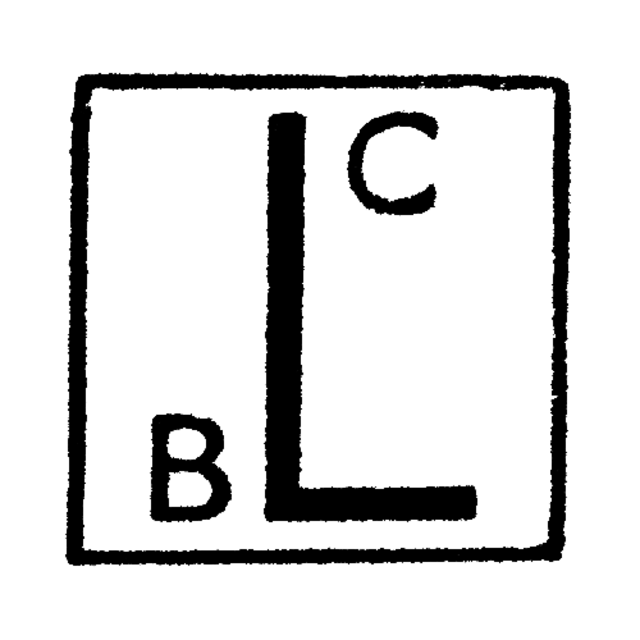
During times of crisis and transformation, the written word sparks change. From pamphlets whispered between revolutionaries to banned books passed hand-to-hand beneath flickering lights, study groups have served as sanctuaries of subversion, spaces where knowledge is shared horizontally and where new worlds begin to take shape. More than leisure or self-help, collective study is a form of mutual aid—a foundational act of care, consciousness-raising, and resistance.
Mutual Aid of the Mind
Mutual aid isn’t just food, shelter, and healthcare—though those are essential. It’s also about equipping each other with the tools to understand the systems we’re struggling against and to envision alternatives. Study groups are intellectual mutual aid: they demystify theory, amplify marginalized voices, and create collective resilience through political education.
They’re not classrooms with hierarchies. They’re affinity groups for the mind—horizontal, self-directed, and rooted in trust. In a world that denies access to liberatory knowledge through gatekeeping, censorship, and commodification, the act of gathering to read and learn together is revolutionary.
A Revolutionary Lineage
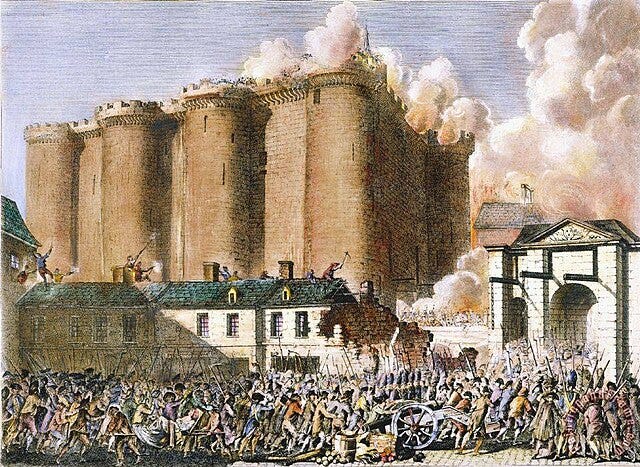
During the French Revolution, book clubs were more than pastimes. Revolutionary clubs like the Société des Amis de la Constitution (better known as the Jacobin Club) and countless smaller reading circles played pivotal roles in shaping public opinion, nurturing democratic ideals, and spreading radical political thought.
These clubs weren't isolated ivory towers—they were embedded in working-class neighborhoods and used study as a form of agitation. Literature on Rousseau, Voltaire, and later revolutionary documents circulated widely, sparking dialogue and dissent in taverns, salons, and the streets. Their influence on the development of modern democratic discourse cannot be overstated.
Centuries later, we still carry this legacy. The Black Panther Party's political education classes, Zapatista literacy campaigns, and union reading circles across the Global South have all used study to bolster movements and sharpen demands.
Left Book Club
Left Book Club editions by TSP via Wikimedia
Another vital chapter in this lineage is the Left Book Club, founded in 1936 by British publisher Victor Gollancz. In the shadow of rising fascism across Europe, the Club sought to counter authoritarianism by equipping ordinary people with progressive ideas, sharp analysis, and a sense of collective purpose.
It wasn’t just a subscription service for radical reads—it was a movement. Members received monthly selections covering socialism, anti-fascism, labor rights, and anti-colonial struggles. These books, printed with distinct orange or red covers, weren’t sold in stores. They were shared in homes, discussed in pub back rooms, and dissected in community halls.
At its height, the Left Book Club had over 57,000 members. It hosted lectures, rallies, and grassroots discussion groups, turning reading into organizing and isolation into solidarity. The Club’s influence helped shape mid-20th-century public opinion in Britain, pushing conversations about poverty, war, empire, and democracy into the everyday lives of working people.
Though it disbanded in 1948 under political pressure and shifting priorities, the Club was revived in 2015 to continue its mission of sharing critical political literature. Its resurgence reminds us that study remains a powerful tool in resisting ignorance, apathy, and oppression.
Murray Bookchin and the Ecology of Ideas
In the 20th century, theorist and organizer Murray Bookchin emphasized the importance of political education within the ecology of social movements. He argued that revolutionary change required not only material support and direct action, but also a deep understanding of systems: ecological, social, and economic. Bookchin’s concept of libertarian municipalism depended on educated, self-organizing communities capable of deliberation and direct democracy.
Study, for Bookchin, was not abstract. It was the groundwork for building dual power—autonomous systems that can exist within and against the state and capitalist institutions. His call for neighborhood assemblies and confederated councils echoed the old revolutionaries but adapted to modern needs. Bookchin’s ideas offer a vision where study groups evolve into full-fledged assemblies—spaces of not just learning, but decision-making and community governance.
Study Groups as Affinity and Defense
In today’s context, study groups serve an additional purpose: they are a form of information security. In a landscape of surveillance, disinformation, and algorithmic manipulation, intentional study in trusted circles becomes an act of digital and mental self-defense. Groups that study together learn to practice information security, sharpen their critique, protect one another from burnout and despair, and develop shared language to navigate crises.
Like how affinity groups of direct action prepare us for confrontation with oppressive forces, study groups prepare each other for the intellectual terrain of organizing: understanding fascism, recognizing co-optation, and dreaming in common. They are where we practice the world we want to live in.
Building the Study Group You Need
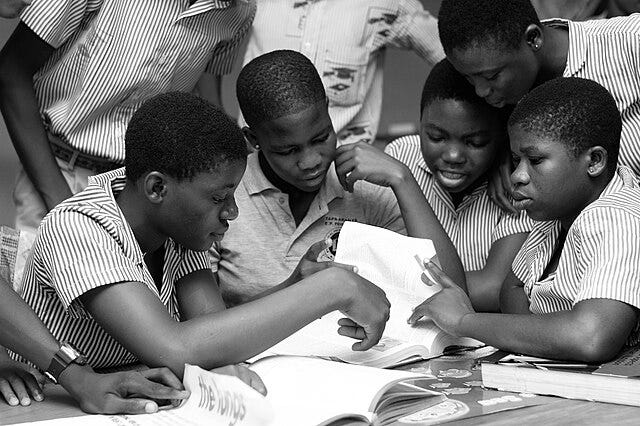
Whether you’re reading Kropotkin in a kitchen, listening to Paulo Freire on your commute, or unpacking climate science on a porch, what matters is that the group is rooted in trust, openness, and shared political intention. Great study groups are spaces where people grow together—personally, politically, and in solidarity.
Here are a few practices that help:
Rotate facilitation to ensure shared leadership and responsibility.
Choose texts collectively, with room for theory, history, and lived experience.
Incorporate multiple forms of learning—discussion, art, media, storytelling.
Center marginalized voices and interrogate how power flows in every reading.
Maintain info-sec practices: use secure communications, protect each other’s privacy, and never assume safety just because a space feels intimate.
Learn How to Be Free

When we gather to learn together, we refuse the isolation of capitalist hegemony. Study groups are not just spaces to consume information—they are places to build relationships, sharpen analysis, and practice liberation in real time. They are quiet acts of rebellion and bold acts of care. They help us unlearn the logic of domination and replace it with solidarity, mutual accountability, and collective imagination.
In an era of accelerating crises—climate collapse, rising fascism, economic precarity, and cultural erasure—understanding why these things are happening is essential to changing them. Political education gives us the language to describe our reality, the frameworks to decode power, and the courage to challenge it. But it does more than that. It forges bonds between people who may otherwise feel alone in their grief, rage, or hope. And in those bonds, something incredible takes root: the belief that we can do something together. And what follows is the power to do it.
Study groups remind us that no one liberates themselves in isolation. That’s the essence of mutual aid—not charity, not saviorism, but the shared work of survival and transformation. To study together is to prepare for the world we’re building beyond the ruins of the old. It is to reclaim the stolen stories and tools of our cultural and intellectual traditions. And then wield them for collective freedom.
So gather your friends, your neighbors, your comrades. Start small. Read something radical. Ask questions. Challenge each other with love. Protect each other fiercely. Study not to escape the world but to remake it.
Because democracy and liberation aren’t solo acts—they’re an ensemble. And study is how we learn to play in harmony.
Beyond Darwinism - Mutual Aid Index
Beyond Survival of the Fittest: Kropotkin's Vision of Mutual Aid
What is the role of solidarity and reciprocity in building equitable and sustainable communities?
Mutual Aid Among Plants and Animals: Cooperating for Survival
Peter Kropotkin Observes How Cooperation Among Species Improves Survival and Shapes Evolution.
Frolics and Barn-Raisings: Mutual Aid Amongst the Amish
Take a Look at the Amish Traditions of Collective Action and Solidarity.
The Arab Spring: Mutual Aid in the Fight for Freedom
See Solidarity in Action with the Collective Struggle for Liberation in the Arab Spring Movements.
The Black Panther Party’s Legacy of Community Empowerment Through Mutual Aid
The BPP protected and served their communities despite rampant racism and being the main targets of the FBI’s Counter-Intelligence Program.
Blessing Boxes: Mutual Aid in Our Communities Today
Find Out How These Simple Free Community Pantries Transform Neighborhoods and Promote Solidarity.
Childcare Collectives: A Modern Expression of Mutual Aid
Childcare Collectives develop when families, friends, and neighbors pool their resources to raise children.
Feeding Hope: The Impact of Community Fridges as Mutual Aid
See How Grassroots Efforts Like Chattanooga’s Hope Community Fridge Transforms Food Access and Fights Food Apartheid.
Grow Food Together: The Impact of Community Gardening as Mutual Aid
Shared Gardens Enhance Food Security, Build Community Bonds, and Promote Well-being Without Personal Expense.
Community Self-Defense: Protecting Ourselves and One Another
Let’s Talk About How Communities Work Together to Protect Themselves From Harm Inflicted by the State and Fascists.
Community Workspaces: Where Coworking Meets Opportunity
Find Out How Shared Community Workspaces Support Creativity and Mutual Empowerment.
Deciding Together: The Consensus Model in Mutual Aid
How Collective Decision-Making Builds Strong and Resilient Movements As Shown by Occupy Wall Street.
Live Together, Thrive Together: Shared Housing as Mutual Aid
Imagine Housing as a Way to Build Community and Share Resources.
Breaking Bread, Building Bonds: What’s Cooking in Community Kitchens?
Learn How These Shared Kitchens Create Lasting Change Through Healthy Meals, Cooking Education, and Mutual Aid.
Migration and Mutual Aid: Navigating a Climate Crisis Together
The USA and Global North Grew Rich Burning Fossil Fuels. Radical Cooperation Can Help Us Adapt to a Changing World.
Forgive Us Our Debts: How Debt Collective Helps Abolish Financial Servitude
Debt Collective Branched Off From Occupy Wall Street and Unifies Debtors in Mutual Aid for Collective Liberation.
Thou Doth Protest? How The Diggers Reclaimed the Commons and Fought Early Capitalism
Learn About the Radical Solidarity and Resistance to the Enclosure of the Common Lands in 17th-Century England.
A World Without Barriers: Consider Accessibility in Mutual Aid
Everyone Becomes Disabled if They Are Lucky. So How Can We Make Our World More Accessible?
Mutual Aid in the Eye of the Storm: Disaster Relief Amid Climate Change
When Disaster Strikes, Mutual Aid Responds: A Blueprint for Resilience Amid More Frequent Catastrophes
Beyond the Ballot Box: Build Dual Power for Real Change
Empower People Through Mutual Aid, Solidarity, and Community Control.
Communities of Care: How Solidarity Transforms Support for Elders and the Differently-Abled
How Can Mutual Aid Principles Change Elderly and Disabled Care From Isolation to Connection?
Growing Resistance: How Food Forests Feed Communities for Free and Defy Capitalism
From Commodities to Commons: The Radical Potential of Agroforestry
Roots of Resilience: Black Mutual Aid Societies in American History
Explore W.E.B. Du Bois’ Work and the Heritage of Solidarity Among Black Folk.
From Despair to Dignity: The Radical Work of Free Clinics
How Mutual Aid and Community Solidarity Transform Access to Healthcare
Feeding Each Other: The Radical Power of Free Grocery Stores
How This Kind of Mutual Aid Transforms Hunger Relief into Community Empowerment
Challenge Capitalism One Free Store at a Time
How Free Stores Empower Communities and Challenge Scarcity
The Past & Future of Self-Governance: How General Assemblies Build Dual Power
Strengthen Communities Through Direct Democracy and Mutual Aid
Let Joy Guide You: The Power of Fun in Change Work
Explore the Role of Laughter, Creativity, and Connection in Community Organizing
Fascism Unmasked: How to Recognize and Resist Modern Authoritarianism
Empower Your Resistance: A Practical Guide to Revolutionary Optimism, Mutual Aid, and Defying Totalitarians
Resist Burnout: Care, Coping, and Wellness in Dark Times
How can we practice self-care to endure the revolutionary marathon and better support one another?
Resistance Anthems: Protest Music for Hard Times
Let’s Unite Our Voices For Justice Through the Power of Music!
Affinity Groups: Decentralized Resistance in an Age of Crises
How Do Small, Autonomous Collectives Build Power and Resistance Against Fascism, Capitalism, and Collapse?
Share a Feast: How Potlucks Build Community and Connection
Let’s Discuss How Sharing Food Nourishes Both Bodies and Bonds Across Generations.
Notes From the Underground: How Forests Teach Mutual Aid
How Do Fungi, Trees, and Other Plants Thrive Through Cooperation and Reciprocity?
Fight Book Bans with Little Free Libraries
How Do Little Free Libraries Turn the Tide Against Book Bans and Censorship?
Read, Rest, Revolt, Repeat: Study Groups as Mutual Aid
How Does Collective Study Build Power, Sharpen Strategy, and Sustain Movements?
Burn After Reading: Comms Discipline for Mutual Aid and Resistance
Think About Encryption, VPNs, Walkie-Talkies, and the Lost Art of Keeping Your Mouth Shut.


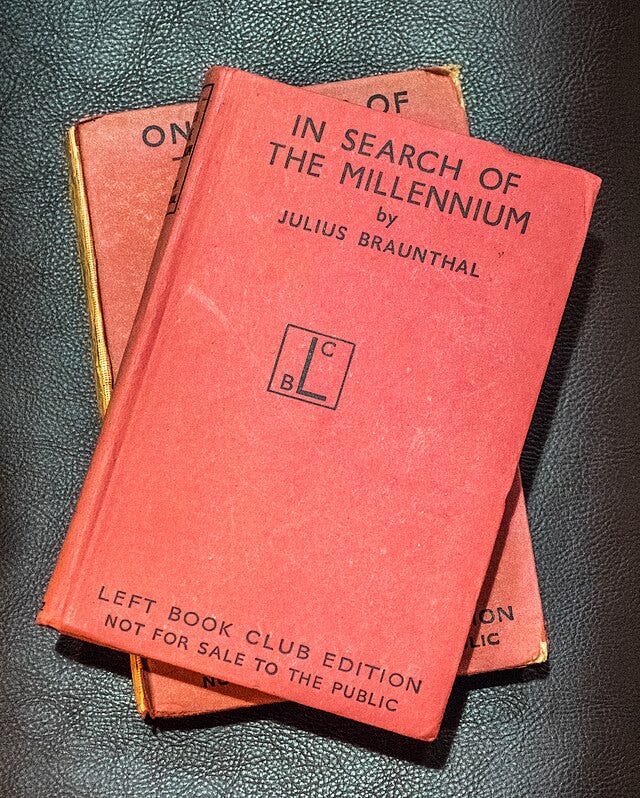
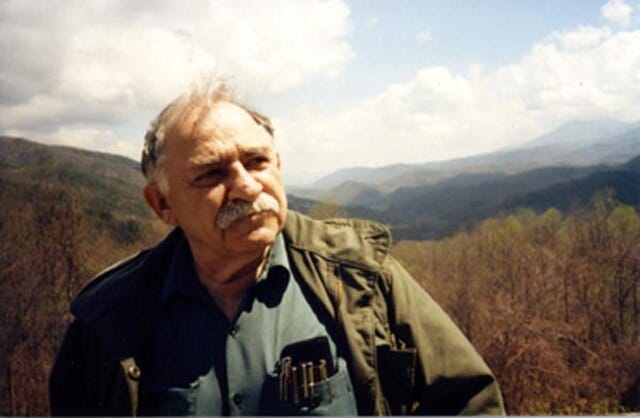
so good JM! Whenever people are struggling to organize, returning to the texts as a collective always shows the way!